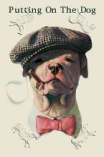|
|
 |
|
~~~~~~~~~~~~~~~~~~~~~~~~~~~~~~~~~~~~~~~~~~~~~~~~~~~~~~~~
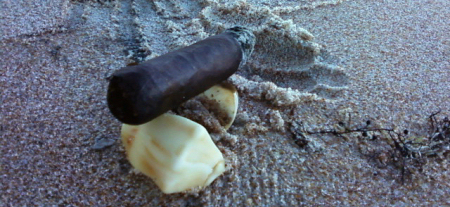
|
| Photo courtesy of Caleb J. Ross (see review below) |
"Maybe
it's like becoming one with the cigar. You lose yourself in it; everything fades away: your worries, your problems, your thoughts.
They fade into the smoke, and the cigar and you are at peace."
~ Raul Julia
|
 |
|
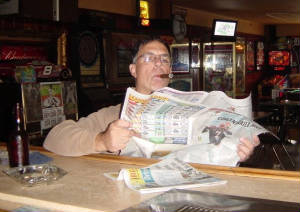
|
| David up in smoke |
Dirty Smoker
Hi,
let me introduce myself. I’m David Blaine, the writer, not the magician, and I’m a dirty smoker.
I’ve never smoked cigarettes.
When I was a kid I smoked a pipe, because my grandfather smoked pipes. When I married and had children my wife asked
me to quit smoking and I did. But I kept the pipes. When I turned fifty, about five years ago, the kids had all
grown and moved out. So I lit up again, but cigars this time.
You might wonder how someone would decide to start
smoking again after thirty years off. Well, it goes back to that grandfather. Grandpa Nunzio smoked cigars on
occasion, and cherry blend in his pipe. I remember sitting on his lap watching the game at his house, baseball, always
baseball. I’m told I was two at the time. I think the aromatics somehow imprinted in my mind because even
now I enjoy sitting near total strangers if they’re smoking a cigar or a pipe.
I enjoy short fat cigars like
a classic Robusto, 5 x 50 or so, with a dark oscuro wrapper. I don’t spend a lot on these smokes, a box
that average a couple of bucks a stick does it for me. But I probably smoke differently than many of you, as I said,
I’m a dirty smoker.
I like to smoke in small spaces, like my truck. I’m sensitive to other people’s
feelings so I don’t want to light up in a room full of non-smokers. Outdoors I’ll face into the breeze to
get the smoke back in my face. And that short five inches gets the fire under my nose sooner. I enjoy the volume
of smoke I get from a fifty gauge or larger. I want it in my hair, in my clothes and on my skin. I want to live
in a cloud of tobacco for forty-five minutes or so, and then I want to keep smelling it and tasting it for the rest of the
day or night.
When I get home, sensitive to the noses of others, I’ll wash my clothes, shower, and brush my teeth.
But toothpaste really doesn’t fix my breath. Blue cheese and red wine though, that helps. May not smell
better, but different? Yeah.
A cigar, a drink, some hot jazz and a good book. Heaven on earth for pocket
change.
Glad to meet you.
David
~~~~~~~~~~~~~~~~~~~~~~~~~~~~~~~~~~~~~~~~~~~~~~~~~~~~~~~~~~
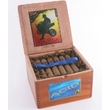
Drew Estate ACID Toast
Reviewed
by Caleb J. Ross
Drew Estate embraces
their reputation as an edgy, perhaps urban cigar. Their incorporation of flashy ad graphics, especially for their ACID
line, and catchy, if not embarrassing, names (Pimp Stick; Really, Drew Estate?) contradicts the legacy of the refined aficionado.
But the promotional braggadocio is warranted, despite its side-car nausea, because in a world of cigar purists Drew Estate
does flavored cigars like none other. Toast is no acceptation.
The experience of a cigar is as much about the product
as it is about the smoker’s surround. I say this up front as a way to ground my feelings for the ACID Toast cigar. While
on vacation in Florida late last year, I stopped by a local tobacconist for a few sticks to enjoy on the beach. Having been
very familiar with the ACID line, Toast was new to me. It maintained the sweet aroma to be expected from an ACID, but instead
of the usual spice notes, I found hints of fruit and popcorn. Yes, popcorn. Later, on the beach, upon lighting, the buttery
aroma ripened, comfortably. Having the ocean in front of me sure didn’t hurt.
According to DeadwoodTobacco.com, Toast is sold in only 20 shops nationwide, which would explain the steep price. One stick demands $9. I should have picked
up a few more when “vacation brain” made money seem infinite.
~~~~~~~~~~~~~~~~~~~~~~~~~~~~~~~~~~~~~~~~~~~~~~~~~~~~~~~~~~~~
Caleb J. Ross has a degree in English with a minor in creative writing from Emporia State University in Emporia, Kansas. While attending
ESU he won the Kay Alden Memorial Scholarship for Excellence in Writing for his short story “Car Dodging.”
~~~~~~~~~~~~~~~~~~~~~~~~~~~~~~~~~~~~~~~~~~~~~~~~~~~~~~~~~~~~
The Smugglers
by Andrew Haley
Mohamed came by and asked if I wanted to go with him to Andorra. I was wearing a sheepskin coat I'd picked
up at the flea market and my window was open. It was November and the coat was too big.
“Why don't you close your window?” he asked.
“Andorra?” I replied.
He explained that there was a bus early Saturday morning and that we'd be gone for the day. He was going to buy cigarettes
for his grandmother.
We walked together to the train station and climbed up to the second floor. There on the roof, grim with the residue
of diesel fumes, the buses were idling. It was still dark and the morning was cold. I bought a watery coffee from a machine
and stood beside our idling bus while the passengers smoked outside. The driver came up, closed the baggage compartment doors
and climbed aboard.
We sat near the back. There was not an empty seat on the bus. We were the youngest passengers and I was the only American.
The bus backed out of its stall and turned down the ramp into the street. I grew disoriented as it wound through a part of
the city I'd never ventured to on foot. The buildings seemed to grow shorter and soon we were passing through vineyards on
a two-lane road with whitewashed plane trees* running along the grassy slopes of the roadside ditches.
We stopped for lunch at a small town in the foothills of the Pyrenees. The streets there were wider than in the cities
and had brick gutters between the sidewalks and the cobbled road. The bare limbs of the plane trees loomed yellow-white against
the winter sky.
As we wound into the mountains I thought of my home. Snow flurries whirled against the glass and the ugly buildings
at the ski resorts towered over great black berms of snow at the edges of the parking lots. There were fewer trees now.
We wandered the ugly streets, the cold air carrying minute flakes that blew against our faces. Mohamed led me to a shop
he favored. It was crowded inside. In a back room I found the liquor. They had casks of muscat and casks of wine. I bought
a liter of muscat siphoned into a plastic bottle. I bought a liter bottle of Paddy's and a liter bottle of Pernod.
Mohamed was at the cash register in the next room with four cartons of Marlboros.
“Aren't you going to get cigarettes?” he asked.
“No,” I said.
“What about cigars?”
There in a glass case by the register were beautiful boxes of cigars. I couldn't believe the prices. I smoked cheap
Partagas from time to time, 10 Franc panatellas good for a quick smoke watching the barges from the bridge. But here were
boxes of the cigars I smoked maybe once a year, real full-bodied Cubans, and at exquisite prices. I bought a box of Montecristo
No 4s and counted out six blue fifty-franc notes and got my change in coins.
At the French border our driver spoke expertly. A customs officer came aboard and stood at the front of the bus looking
over us warily. Mohamed and I had a carton of Marlboros up each leg of our trousers. I had the two bottles in my sleeves.
Mohamed had the muscat wrapped in his coat. The box of Montecristos was tucked in the small of my back.
The customs officer walked up and down the aisle and stopped at the seats in front of us. He demanded the woman in front
of us open her bag. She protested and he opened it for her. Inside were cassettes and pots and pans and brand new clothes.
These are mine she shouted but he pulled her up and dragged her off the bus. Her husband, with a neutered look, got up and
followed her off. As we drove away they were standing beside their bag of contraband, the woman shouting in the faces of three
customs officers.
Once we were safely back in France, all the passengers erupted in good cheer. A strange fraternal feeling came over
us. We pulled goods from sleeves and coat pockets and from beneath our seats. There was a frantic thirty minutes of show and
tell.
Out in the dark the whitewashed trunks of the trees glowed in the bus's lights. Over the fields you could see the lights
of the villages. It began to rain softly. From time to time the headlights of a car coming in the opposite direction would
illuminate the seats and the sleeping passengers.
Back at the station Mohamed bid me farewell. He was taking the cigarettes to his family's home directly. We shook hands
and kissed each other on the cheek. I walked down the escalator into the hall of the empty station and went out under the
black electric timetable and past the taxi stand to wait for the bus back to the university.
Once home, I arranged my goods on my vinyl table top and washed my face. Then I filled my little water glass with whiskey.
I opened that beautiful yellow box, lifted the elegant paper wrapper and admired them together, packed neatly side by side.
I tore a strip from the sheet of cedar, warmed the tip of the cigar above the flame, and, turning it neatly, lit it and pulled
the chair up to the open window.
*Sycamore trees
~~~~~~~~~~~~~~~~~~~~~~~~~~~~~~~~~~~~~~~~~~~~~~~~~~~~~~~~~~~~
Andrew Haley is the author of four
novels: Octopus, Liar, Transference and Beggars
Opera. His poems have appeared in Western Humanities Review, Beltway Poetry Quarterly,
Quarterly West, Zone and GoodFoot. Along with Ivana Gamarnik, he co-translated
Lola Arias' play, Mi Vida Despues, into English. A bilingual edition of the play
was published in Buenos Aires. He is currently at work on a collection of short stories, titled Signals.
~~~~~~~~~~~~~~~~~~~~~~~~~~~~~~~~~~~~~~~~~~~~~~~~~~~~~~~~~~~~
Kentucky
Back World Conduits
by Rich Baiocco
I
saw my mom do something cool with her cigar once. It was hot out—the middle
of the summer that my grandfather brought his dog Macy to die with us—and the air conditioner was busted, leaving a
film of Technicolor sweat glazed on all forearms and faces. Kentucky Conduits—Cheroot
Cigars. They were cigarillos, thin, rat-tail-like cigars she would cut into thirds and keep in her blouse pockets. Most people
would chew on them like cud because they lent out this rich, apricot-molasses flavor, but my mom would smoke them all day.
I
don’t know how such a small woman did it—I found it harder than getting music out of a trumpet. Her lungs must’ve
been superhuman, like two crew athletes rowing in tandem to generate any sort pleasure from those things. It seemed each time
she brought a Kentucky Conduit to her lips this massive, maelstrom force harnessed up in the windy skies behind her, slipped
between her shoulder blades and vacuumed a breath for her because I never once saw anything but an easy, faint smile appear
beneath her Portuguese eyes. I tried to smoke one when I was 13 and almost passed
out from exhaustion.
Macy
came from Kentucky. He was a hand-delivered gift from my grandfather’s
first wife when his second wife—my mom’s mom—died. Composed of once taut, muscular haunches, Macy now sagged,
limp and deformed like an ex-wrestler, and didn’t budge from my grandfather’s white-knuckle grip all summer. The
two of them caused the grass to discolor in the yard, huddled in the same spot, on guard, with my grandfather making nasty
comments to my mom about how she needed to get a husband around this house again, to clean out the yard.
I
felt for my grandfather, even though I feared him ever since he speared me in the stomach with his cane for touching one of
the newly-developed skin tags on his back that looked as if someone had stubbed tar cigars out on him. His sons were all grown, spread out west, loved him but couldn’t take care of him, what with their
own families, their own dying dogs. He came to us with Macy and a pouch of Kentucky
Conduits that he could only suck on unlit since the cancer bit into his lungs a few years ago.
When Macy began spitting up blood on the grass, things became tense. My grandfather would curse at my mom—always
within earshot but out of eyesight—and blame her cooking.
“What
do you expect with what we have to put up with here? With this … pig slop!”
I
cloaked myself in my mom’s heavy smoke and noticed she didn’t even flinch at his barbed remarks, but kept pulling
calm drags as we washed the dishes. I flinched. I always wanted to be like her, but I wasn’t strong enough. I didn’t
have the lungs, and I guess I didn’t have the nerve, and if I ever lost the scent of Kentucky Conduits, I wouldn’t
recognize her smell at all.
I
spent that summer on the periphery, realizing there was a chance I’d be asked to put Macy down. My grandfather realized
this too, and kept a closer watch on me. He shared the same Portuguese eyes as his daughter, both intimidating in that they
held an ancient fisherman’s sadness of centuries spent staring at the sea. He called me a Mama’s Boy.
I
quickly flicked him the middle finger and Macy barked at me. My grandfather laughed until he began coughing so hard I had
to fetch him some water.
“You
see! This ol’ boy here is still strong as an ox.”
His
cough never really died down though, but rumbled into the night until it met Macy’s whining and howling like some sort
of junk orchestra ensemble suffering. No one could sleep. Early in the morning,
I heard my grandfather shuffle Macy to their post in the yard, the dog wheezing terribly. The sun had only broken into the
morning sky an hour or two earlier, but pushed its weight directly onto my grandfather’s brow as he sweat the minutes
waiting for everyone to wake up.
I
brought him some juice and noticed his hand shaking. He gestured for me to put the glass on his table, and then I saw his
hand stop shaking as he pressed it down against his thigh and looked up at the porch at my mom in the doorway, lighting her
first cigar of the new day.
He
called for breakfast.
He
criticized her and me for sleeping so late.
She
removed the cigar from her mouth and for the first time I watched her take a strained breath, like a sigh, but inward. Their
ancient fisherman eyes locked across the yard, and she approached him with a directness that arrested the old man. Standing
only an arm’s length away, she made one quick move to crouch before Macy, and as she did, my grandfather shot back in
his chair and flinched his hands to protect his own throat, as if for a lost moment he did not know which of them she was
coming for.
Looking
at the suffering dog, she craned her head in sympathy, and then began taking rapid puffs from her Kentucky Conduits, three
or four at a time and letting heaves of dark smoke billow from her lips to envelope Macy’s head. In between puffs she
would anoint each side of his head like a priest with his incense, whispering words in Portuguese that I didn’t understand,
but I assume my grandfather did, because his entire body tensed up, and his knuckles shocked white as he gripped into the
cloud of smoke which had quickly covered Macy’s body. My grandfather looked into the sky through my mother’s smoke
as if he had seen something he had never seen before. I imagined the Back World
force that tapped into my mom’s lungs had pulled Macy up through her Kentucky Conduit, because I felt things being pulled
from me as well, like my breath and my worry. My grandfather released his grip from the cloud and relaxed as well, because
there was nothing left to hold on to now, and perhaps whatever he had seen in the Back World sky could finally see him, too.
My
mom stood up and handed her father the remaining thumb length of cigar, and disappeared back into her house.
And
the cloud of smoke remained.
My
grandfather stubbed out the cigar and stuck it in his mouth to chew on. He looked smaller, somehow. When there was no flavor
left in it, he said to me, “There’s no flavor left in this.” I nodded. He asked me to help him up, and then
he asked me to fetch a shovel. Then he asked me to meet him in the garden.
~~~~~~~~~~~~~~~~~~~~~~~~~~~~~~~~~~~~~~~~~~~~~~~~~~~~~~~~~~~~
Rich Baiocco is a writer who recently relocated to Brooklyn, New York, from San Diego, California, with traces of saltwater still
in his lungs after surviving a drowning episode which may or may not have coincided with the wild un-success of his virgin
publishing experience, the book Julie In Mittens. He loves New York
City and he loves the ocean and he has even learned to love undertows because ultimately they just drag you, against your
will, to a new perspective ... and that kind of change is vital.
~~~~~~~~~~~~~~~~~~~~~~~~~~~~~~~~~~~~~~~~~~~~~~~~~~~~~~~~~~~~
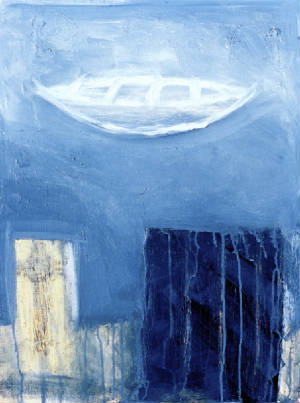
|
| Michael Dunn, Boat Series D |
|
 |
|
|
 |
|
|
 |
|
|
|
|
Feedback, submissions, ideas? Email thesmokingpoet@gmail.com
|
|
|
 |
